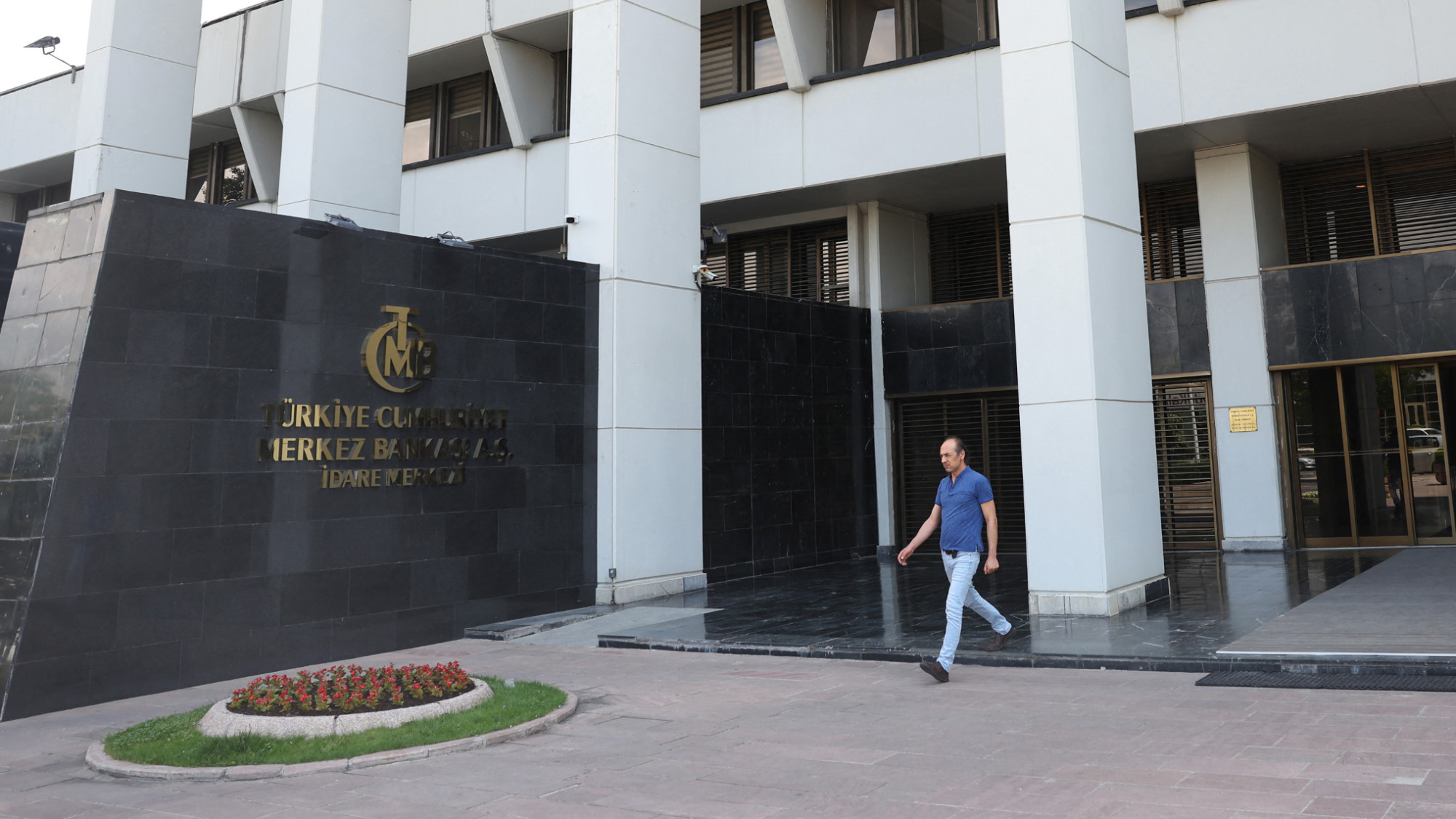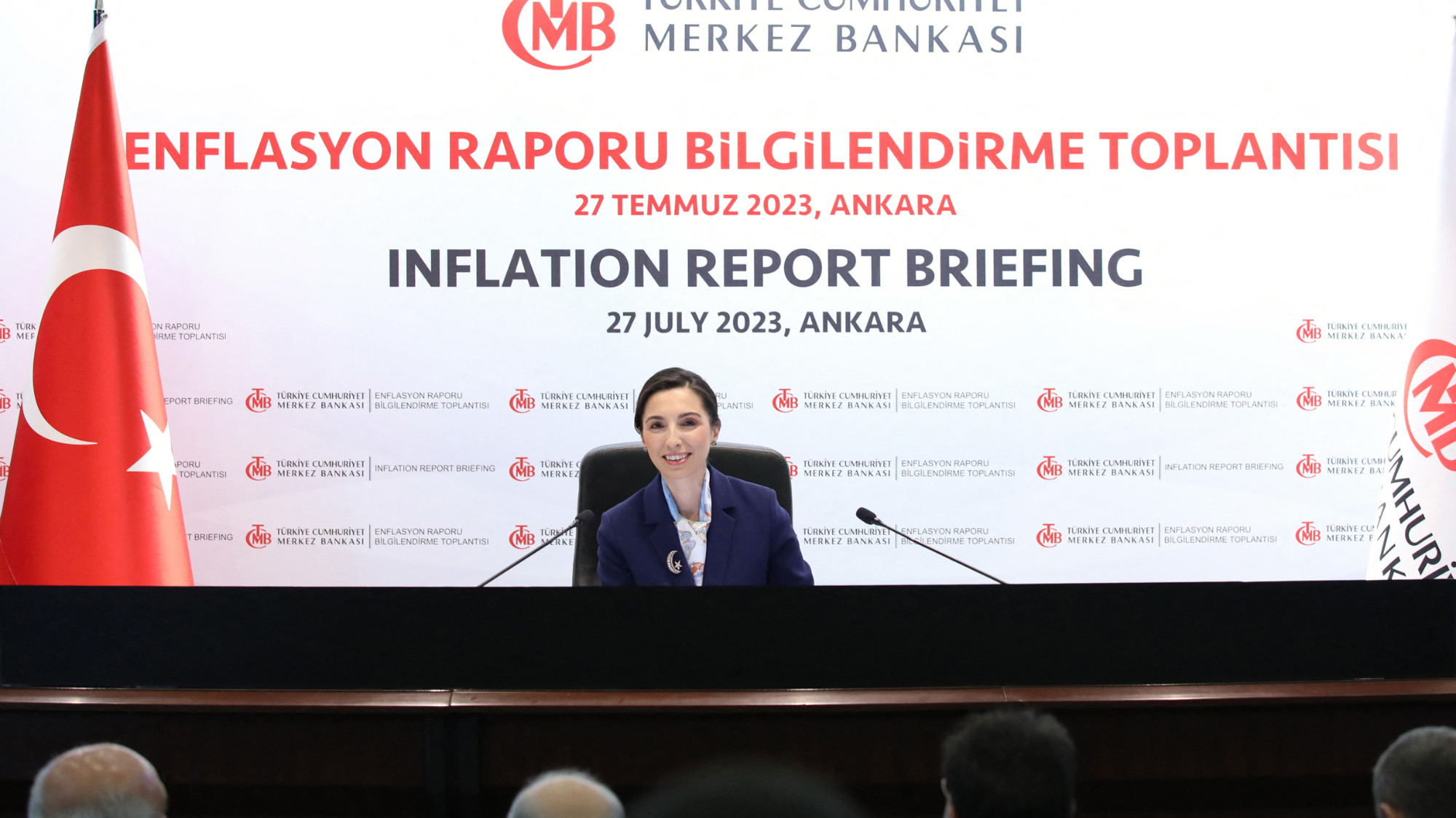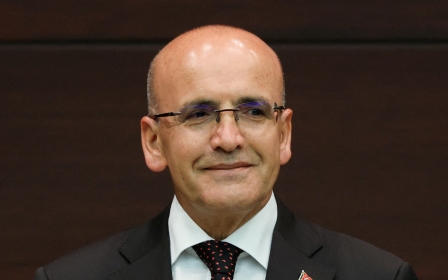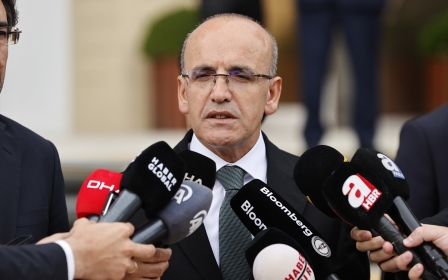Turkey: The rise and fall of the country's first woman central bank governor
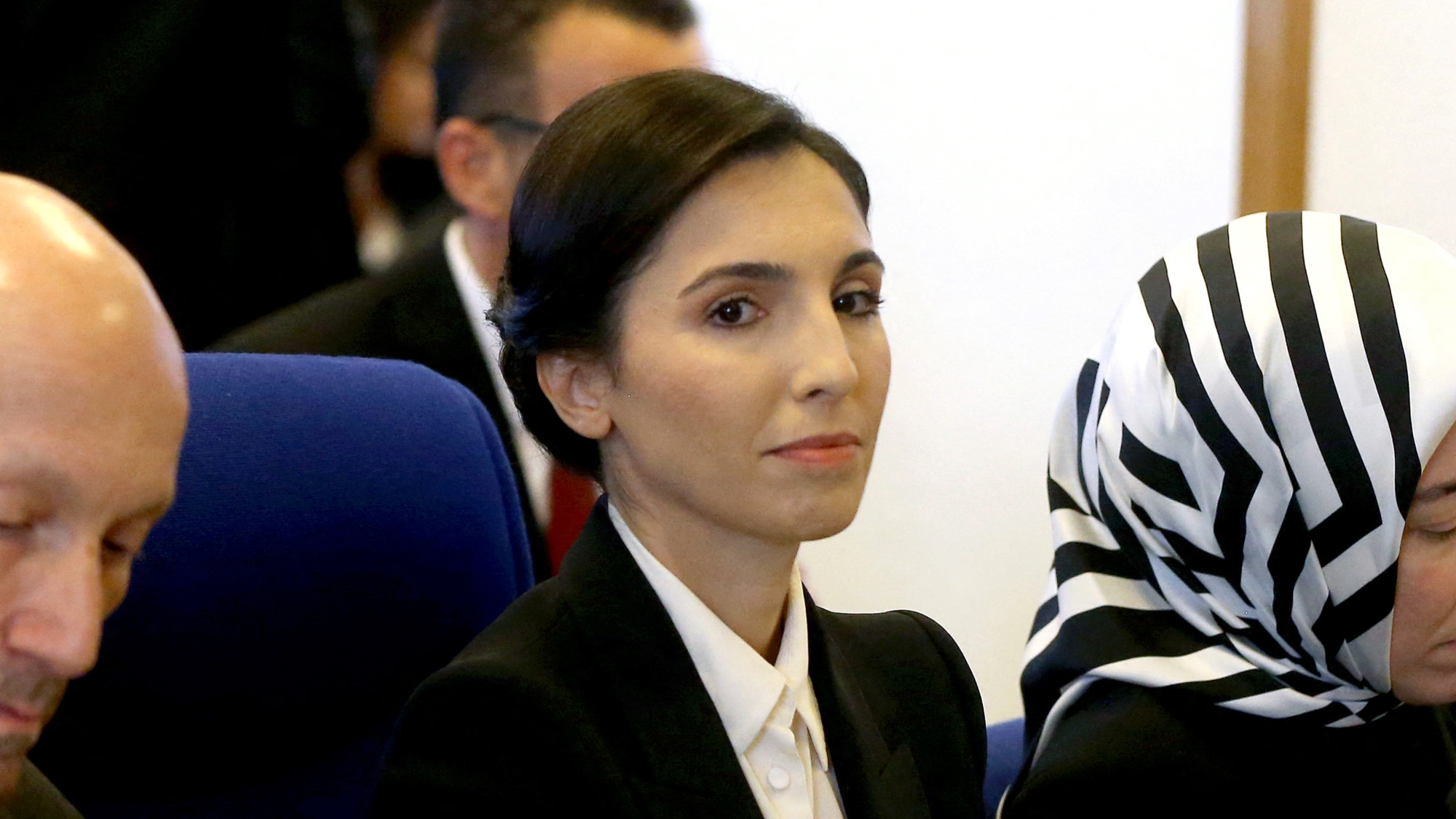
When Turkish President Recep Tayyip Erdogan picked Hafize Gaye Erkan as the country's first woman central bank governor, it came as a surprise.
Nominated by new Finance Minister Mehmet Simsek, Erkan came to the fore with strong educational and professional credentials, including a recent role as a top official at an American bank.
Erdogan, who appreciates people with western education and experience, likely chose her believing in her qualifications but also banking on her profile, according to two sources familiar with the issue.
It was thought the appointment, breaking a glass ceiling, would look good in the West and among foreign investors.
Additionally, appointing a woman central bank governor was rumoured to be on the opposition's agenda had they won the presidential election last May.
New MEE newsletter: Jerusalem Dispatch
Sign up to get the latest insights and analysis on Israel-Palestine, alongside Turkey Unpacked and other MEE newsletters
Before the election, Erdogan's obsession with lowering interest rates, while imposing sudden changes of central bank governors, had triggered a vicious circle of inflation and depreciation of the Turkish lira.
The president changed course after the election with the appointment of mainstream former economy official, Simsek, as finance minister and Erkan, who quickly reined in the central bank.
Delivering one interest rate increase after the other, taking it from 8.5 percent in May to 45 percent in January, Erkan helped improve Turkey's financial credibility and investor trust.
But less than nine months after winning the job, she was sacked, sparking as much surprise as her initial appointment.
Shocked by the dismissal, European officials and observers questioned whether sexist allegations against her in Turkish media were behind the decision.
But sources close to the government paint a different story, one filled with internal strife, long absences and accusations of misconduct.
Mixed bag
Even though many hadn't heard of her before her short stint at the central bank, Erkan wasn't a total stranger in government circles.
While working at the investment bank Goldman Sachs, assuming different roles over nine years including heading financial institutions, she had many engagements with Turkish officials and companies with ties to the current government.
Simsek himself met her during a financial roadshow in the US in the early 2010s.
"Many question who brought Erkan on board," one former Turkish official told Middle East Eye. "It is Simsek, no doubt. The rest is total gossip."
But Erkan's impeccable CV, which includes a PhD in risk management, had already been dented due to her tenure at San Francisco-based First Republic Bank, where she first worked as chief investment officer then as the bank's president and finally as a CEO, until she left in December 2021.
'Many question who brought Erkan on board ... It was Simsek, no doubt'
- Former Turkish official
The bank later went bankrupt and closed down in May 2023, one month before Erkan's appointment in Turkey.
Her run-ins with other senior executives there were described as "toxic", according to the Financial Times, insinuating her conduct might have complicated the bank's already stressed structure.
However, her first few months as Turkey's central bank governor were calm and competent, as she delivered a succession of interest rate increases and simplified the financial system to better help its restoration.
One month after her appointment in June, Erdogan named several economists to the bank's monetary policy committee, further strengthening the bank's credibility. They included well-known banker Cevdet Akcay; Fatih Karahan, a former principal economist with Amazon; and Hatice Karahan, a long-time Erdogan adviser.
That's when some of the trouble began.
Disagreements, bad PR and a complaint
According to two sources who have knowledge of the issue, over time Erkan started to have a difficult relationship with Akcay and Hatice Karahan.
Erkan treated the monetary committee not as a consultation body but merely as having a symbolic role while following the governor's wishes, the sources told MEE.
They added that Erkan specifically excluded Hatice Karahan from investor engagements, even though that was her job description.
By November, following her presentation of an inflation report to the media, Erkan started to spend her time mainly at the central bank's Istanbul branch rather than in the capital, Ankara, a Turkish official told MEE. She also acquired the services of a public relations professional at that time.
In December, she gave an interview to the pro-government daily Hurriyet, which sparked criticism against her.
Erkan told the newspaper she couldn't afford to rent an apartment in Istanbul, finding it more expensive than Manhattan, which forced her to stay at her mother's house instead.
The comment was quickly dismissed by commentators as a public relations stunt since she was paid a high salary and owned assets worth millions of dollars from her banking career.
She also said she had asked Erdogan to give her "three strategic sectors" to incentivise and support, such as the defence industry, which has grown over the years under the president's directive.
The remarks made the rounds in Ankara, with some viewing it as Erkan stepping out of her line as a bureaucrat and moving towards politics. Some wondered whether Erkan had wishes to become a minister.
Then came issues regarding her father, Erol Erkan.
According to several officials speaking to MEE, Hafize relied on her parents for help at the bank when she needed to care for her baby boy, who was nine months old when she assumed her new role.
But by January, Erol was accused of behaving like a de-facto chief of staff, firing and disciplining personnel at will, according to a central bank worker who filed a petition to the presidency with these complaints.
The employee, Busra Bozkurt, who was fired from the bank allegedly by Erol, later told the media that Erol also allegedly slapped an employee at the bank.
Erol told local media the allegations against him were part of a "conspiracy", adding that someone orchestrated "systematic attacks" against him and his daughter, calling the reports "fake news".
Bozkurt also revealed to the media that Hafize spent almost a month in the US just before Christmas and until after the New Year for investor meetings. Two separate sources told MEE that she didn't assign a deputy to take over her responsibilities while she was away.
Hafize in a statement denied the allegations, called them "a smear campaign", and said she would file a complaint against those behind it.
But the damage was done. Endless rumours started to circulate within the corridors of ministries and among foreign investors, eating up her credibility.
MEE's attempts to contact Hafize for the story, who rarely speaks to the media, went unanswered.
Trigger point
With scandals piling up, investors and Turkey-focused analysts started to informally play a bet on whether Erdogan would sack Erkan for her father's conduct. With decisive local elections coming up in March, many thought he would wait until after then.
Simsek, a former Wall Street banker himself, had become aware of the loss of confidence by the markets in Erkan, the very person he single-handedly brought to office.
He also recognised the growing tensions between Erkan and the monetary committee staff and concerns that some members could resign, which would further erode the hard-earned credibility of the bank within the international financial world.
Erkan had another disadvantage: she lost her political trust within the ruling AK party.
Four separate Turkish officials told MEE that as Erkan excelled in her job, her father began promoting her as the most likely "first-ever woman president of the Turkish republic", raising eyebrows among top advisers.
Then Simsek made up his mind.
'The president wanted to show the financial markets that the change wasn't about the financial policies that were implemented by Erkan'
- Turkish official
After the monetary committee meeting that increased interest rates to 45 percent in late January, the finance minister paid Erdogan a visit, according to two separate sources familiar with the meeting.
Simsek broke down how Erkan's credibility had been eroded by the allegations against her. He told the president that keeping her in her post until after the elections could lead to further disarray at the bank, undermining Turkey's standing in the financial markets.
Simsek suggested as the replacement Fatih Karahan, who was a former official at the prestigious Federal Reserve Bank of New York.
When Erkan returned to Turkey from a short investment trip to Spain, Simsek told her that she was going to be replaced.
The finance ministry, the central bank and the presidency then worked on a series of public statements, which painted Erkan's departure as a personal choice to protect her and her family against smear campaigns.
Simsek in a formal statement said Erdogan would appoint a new governor "in line with" his recommendation, a sign of trust that hasn't been given to any finance minister before.
"The president wanted to show the financial markets that the change wasn't about the financial policies that were implemented by Erkan," one Turkish official said. "It was about restoring the credibility of the bank beyond those concerns."
Another official said the sacking was a concrete confirmation that Simsek was now the ultimate person in charge of the economy, receiving a rarely seen independence and authority from Erdogan.
A spokesperson for the finance ministry declined to comment for this article.
Middle East Eye delivers independent and unrivalled coverage and analysis of the Middle East, North Africa and beyond. To learn more about republishing this content and the associated fees, please fill out this form. More about MEE can be found here.


